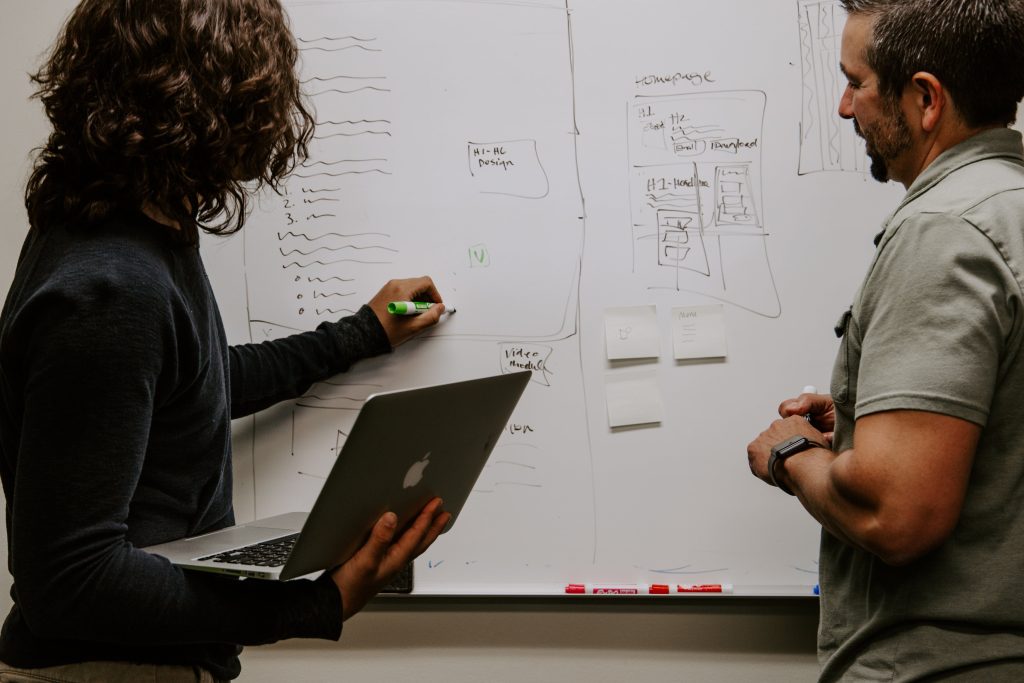Hey guys, it’s Michael Carlson, and I want to talk to you about the importance of taking a business class in high school and various essay writing challenges you might encounter. Business class is not only about textbooks and exams – they equip students with practical skills and knowledge. In high school business classes, students learn about various business-related topics, including entrepreneurship, marketing, accounting, finance, and economics. Students gain an understanding of how business impacts our lives and knowledge not only about running a business but also about career paths within the business field. Doesn’t it make business class one of the most important classes in high school?
Indeed, business classes in high school are very important, but their success often depends on the curriculum, the ability of the professor to explain differences essays articles, and the approach of a specific high school or teachers. Imagine a typical high school business class: numbers, charts, complex financial concepts… These sound super boring, don’t they? Business classes are important for every student who plans to be an entrepreneur or simply wants to enhance their financial literacy. Keep in mind that arriving late to class means you’ll miss important information, so make sure you’re always on time.
For students seeking to enhance their understanding of business concepts, utilizing a business paper writing service can provide tailored assistance to complement their studies.
Keep reading this article to find out why high school business classes are important to all students and how to improve skills beyond the classroom.
Important Class or a Boring Lesson: What is Business Class in High School?
If you ask students what is business class in high school, many would say that business classes in high school are incredibly boring. I’m not going to argue with these claims, but why do students often think this way? Business classes are all about finance, economics, marketing, and entrepreneurship. However, these topics can be fun and engaging, so there must be a different reason.
Students may perceive business class as a boring lesson because of an ineffective curriculum or unengaging teaching style. In addition, students may feel bored when they don’t see how the knowledge they gain can be applied to real-life situations. Personally, I find business studies very interesting and one of the easiest college courses, but I understand why some high school students think differently. I believe that by developing relevant lesson plans for high school, teachers can make their lessons more interesting and appealing to the students.
One strategy to make high school business classes more engaging for students is to teach them how to focus on their practical meaning. Building a business mindset can easily lead to getting some of the in the US; this is how we can encourage students in becoming more interested in the topic.
When a student studies concepts applicable to real-world situations, they tend to be more interested in the topic. This can involve assigning projects that require students to solve real business problems or create business plans. Guides with CS essay recommendations can help them polish communication skills. When designing lesson plans for high school students, teachers should shift focus from boring numbers to more interesting hands-on activities.
For instance, teachers can organize simulations where students can create and run their own businesses or develop marketing campaigns for real products or services. Teachers can also schedule visits to local businesses or arrange field trips to relevant industry events or conferences. By incorporating these strategies into lesson plans in high school, teachers will emphasize the practicality of knowledge and skills students gain in business studies, contributing to their engagement in business classes.
Engaging in such projects can be further supported by professional business plan writing services, offering students real-world insights into business planning.
Entrepreneurship and Finance: What Do You Learn in Business Class in High School?
Before you decide to enroll in the course, you need to take into account some factors. Aside from teaching style, you need to consider course content to understand what topics are covered. What do you learn in business class in high school? Let’s find out the key topics!

- Finance. By learning about budgeting, financial analysis, investment strategies, and financial decision-making, students will learn to manage finance and resources.
- Marketing. Exploring marketing involves learning about market research, consumer behavior, and product development, which will help students understand customer needs and preferences and how products and services meet their demands.
- Economics. During their business course, students will learn about economics at different levels, including how individuals, businesses, and societies make choices regarding the allocation of resources.
- Accounting. High school business classes can also help students develop a better understanding of various processes associated with accounting, financial analysis, budgeting, and the role of accounting in business decision-making.
- Management. This topic focuses on coordinating activities to reach business goals, which helps students develop strategic thinking. Students also learn some information about the legal implications of business structures and managing projects.
- Entrepreneurship. Last but not least, students gain some valuable knowledge about starting and running a business. This involves developing skills associated with business planning and idea generation, which helps establish a business mindset.
What do you learn in business class in high school, and how do essays contribute to the development of a business mindset?
Students in high school learn many things, particularly in business classes. How do you check if students understand the topic? How do you help students analyze the information they learn during the course? One way is through essays. Essays are helpful for both teachers and students. Teachers can effectively evaluate students’ knowledge and skills, while students can develop critical thinking and deepen their understanding of various topics. Here are some reasons why essays play a crucial role in shaping a business mindset:
- Essays require students to analyze and evaluate different resources, which helps them develop critical thinking, which is crucial for business.
- By writing essays, students explore business concepts in depth and may develop a better understanding of the subject matter.
- Essays help students develop their own perspectives on what they learn, encouraging them to present their ideas and building confidence in their abilities.
That is why essays are crucial for students in high school who strive to develop a business mindset. By the way, if you are a student who needs help with your business class essays, you can visit our business studies essay guide for assistance. You are welcome!
A Course to Financial Success: Why Study Business in High School?
Why study business in high school if you don’t plan to be an entrepreneur? If you ask me, I’m sure this class is absolutely necessary for every high school student. No matter what the student plans to do, they will have to deal with finance, even if they are eligible for some scholarships for low income students. Whether they plan to start a business or not, an understanding of finances is necessary to manage personal money. In addition to finance, high school students learn about economics and marketing, which also impact everyone. Hence, high school business classes are not solely about businesses – they are about navigating the world we live in.
Why study business in high school is important to all students?
Different high school students have different plans for their future. Regardless of their plans and aspirations, business class high school students can benefit from the knowledge they gain during this course. Here is why different students in high school should attend the business course:
- Future entrepreneurs. Is there even a need to explain why these high school students need business classes? It goes without saying that these ambitious students need a comprehensive business course. The business classes cover a wide range of topics and may help future entrepreneurs understand the challenges and opportunities of running a business, develop a business mindset, and gain the necessary skills and knowledge for success, yet before they start exploring business law dissertation topics or wonder. If you plan to go to Texas and become wealthier than Elon Musk, you definitely need to attend business classes.
- Those who plan to work in the business field. Without a doubt, these students also should attend business courses in high school. By learning business sciences in high school, students will get acquainted with industry-specific concepts and gain practical skills, e.g discover some basic, they can apply to their future professions. They will learn the basics of various business careers, including finance, marketing, management, and human resources. If you want to pursue a career in these fields, business classes are definitely for you.
- Students pursuing other career paths. If you plan to become a doctor, an engineer, an artist, or another career unrelated to business, you might think that business classes are unnecessary. Well, understanding of how business works can be a game changer for every profession. Financial literacy and project management are essential for success in any career, not to mention critical thinking abilities students develop during business classes. Whether you’re interested in or what the most are, understanding valuable business concepts opens doors to new opportunities, setting students up for success.
- Other students. I’m not going to argue that a career is not the most important thing for everyone. Some students might devote their lives to their families, but they still can benefit from business classes. By attending high school business classes, students will develop the skills necessary to manage their households. Understanding basic business principles also helps individuals make well-informed decisions regarding their personal finances, investments, and household budgeting. Hence, even those who don’t work can benefit from a business course, so isn’t it one of the most important classes?
HANDPICKED RELATED CONTENT:
|
Business Extracurricular to Unlock Skills Beyond the Classroom
Are you passionate about business studies? If so, you should definitely attend business extracurriculars. By attending additional business classes, students can go beyond the basic knowledge and skills they can develop by enrolling in business high school classes. Here are several business-related extracurriculars you can attend:
- Future Business Leaders of America
- Junior Achievement
- Investment Clubs
- Entrepreneurship Programs
- Business Plan Competitions
- Internships and Job Shadowing
As we come to the end of this reading, I want to express my sincere hope that it fueled your passion for entrepreneurship and business studies. The business world offers endless opportunities for growth, innovation, and impact. However, even if you are not going to become an entrepreneur or pursue a career in business, the knowledge you can gain in business classes will serve you well as a solid foundation for your future success. Embrace the challenges, take risks, stay curious, and never stop learning. Good luck in pursuing your business journey!
Even if you don’t plan to get a business degree, you will probably have some business classes in college. If you find business writing hard, whether it’s or simple essays, you can always visit our blog for easy and helpful guides.





